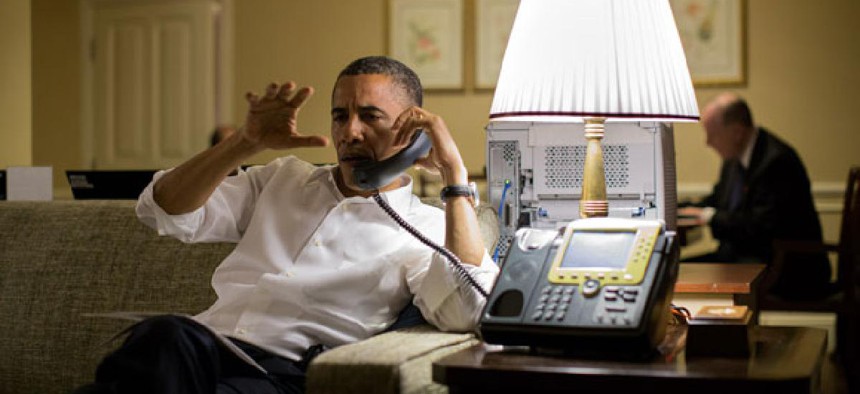
White House photo
On Election Day, after waiting in line for about an hour to vote in my Virginia precinct, I went on Facebook to announce my excitement: “I’m officially a swing-state voter!” I wrote.
Within minutes, several friends and family members had read and clicked the “Like” link to indicate their approval.
What was great is that only I could tell they were coming from polar opposites of the political spectrum, united solely in their approval of democracy at its purest level of expression.
It felt like we had been waiting forever for Election Day when it finally arrived. And when it did, it felt oddly anticlimactic—what was expected to be an extremely close, drawn-out electoral battle turned out to be over before midnight. And for the next four years, we learned, we’d get not a dramatically different approach to organizing, funding and running the federal government, but more of the same—with some twists, of course.
The election may or may not provide President Obama with a mandate for his policies and his particular style of governing. But it certainly affords him the opportunity to fulfill and expand on initiatives launched in his first term. Charlie Clark details one of the most significant in our cover story this month—the creation of the Consumer Financial Protection Bureau.
CFPB is, as we note on the cover, the agency of the future (although that future might well have been imperiled in a Romney administration). With it comes the challenge of designing an appropriate structure, building a technology backbone and hiring hundreds of staffers. That latter task is particularly challenging, especially when an agency like CFPB needs employees with specialized, in-demand skills to fulfill its mission.
One big question looming over Obama’s second term is how seriously he and his team will take the job of honing and improving the operations of CFPB and other agencies. In second terms, management improvement efforts tend to lose steam. There’s no more political capital to be gained from them (if there was ever much in the first place), and they tend to take a back seat to efforts to build a president’s legacy through policy achievements.
At the same time, there’s reason to be hopeful. In second terms, the pressure is off and typically there is more room for experimentation. Also, presidents tend to appoint more experienced senior officials to lead agencies in second terms, with most of the political rewards doled out the first time around. Sometimes even career executives get a chance at top slots, at least on an acting basis. And since Congress at least took baby steps toward streamlining the political appointments process earlier this year, Obama might even be able to get a new team in place relatively quickly.
That, of course, would require bipartisan cooperation and engagement on issues that promise little political reward. Both Obama and his challenger, Mitt Romney, sounded a hopeful tone on that front on election night.
“The nation, as you know, is at a critical point,” Romney said. “At a time like this, we can’t risk partisan bickering and political posturing. Our leaders have to reach across the aisle to do the people’s work.” Just minutes later, Obama picked up on the theme: “By itself, the recognition that we have common hopes and dreams won’t end all the gridlock, resolve all our problems, or substitute for the painstaking work of building consensus and making the difficult compromises needed to move this country forward. But that common bond is where we must begin.”
Here’s hoping that spirit extends beyond Election Night.
NEXT STORY: No Argument







